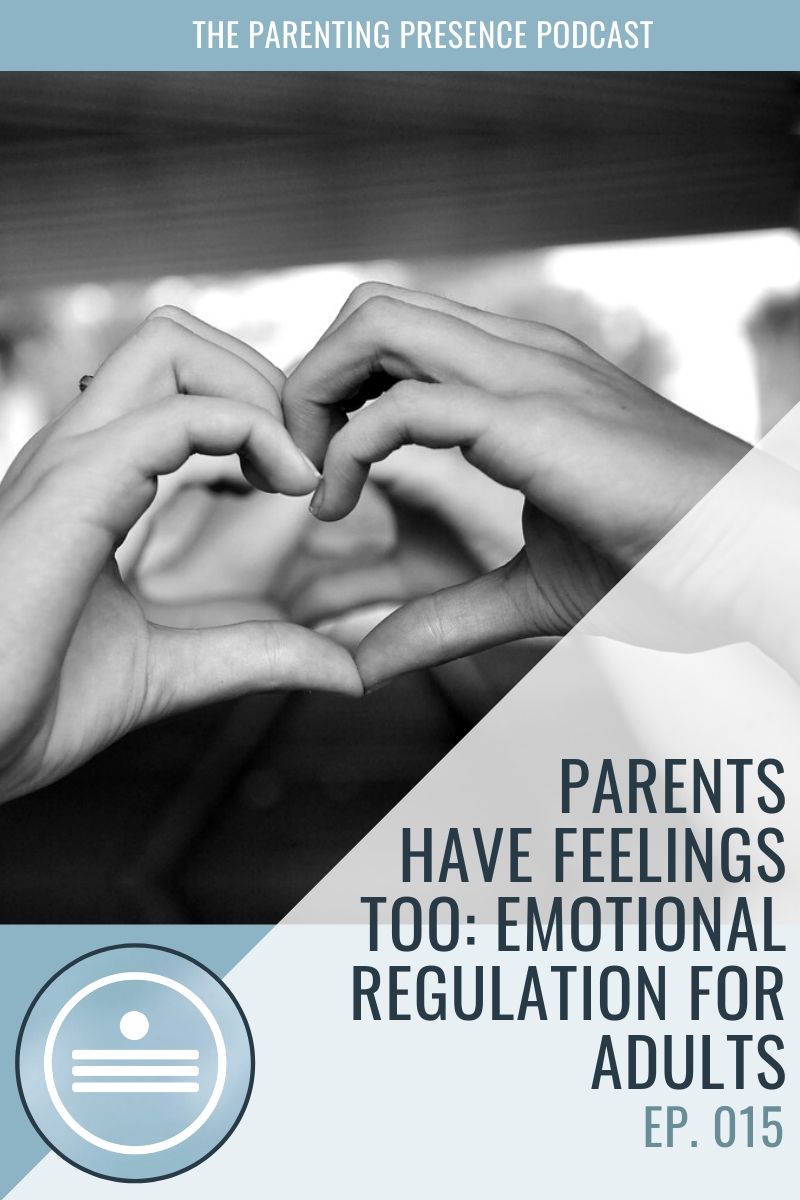
When we talk about emotional regulation, we focus on the children and their skill set. But parents also need to know how to process their own feelings, before they can help their children.
If you know that emotions are important, what do you do with them?
If you know that emotional regulation is a skill, what does it accomplish?
And if you know there is a way to process what you are feeling, how exactly do you do that?
This is not a test.
But it is important to know the answers to these questions, because it makes your parenting more enjoyable and has an impact on the rest of your life.
Emotions are your personal power, they are the energy behind your Parenting Presence. You access the power of your emotions through emotional regulation, which we need just as much as our children. It is all about the ability to identify unmet needs and taking care of them. It is not about “sitting with” the emotion and waiting for it to pass.
We talk about that and more, and I also invite you to the Emotionally Intelligent Parenting project.
We have been conditioned by our upbringing and our experiences to believe that emotions make us weak. That is why we hide them and hide from them.
Even though it is untrue (emotions do not make us weak), this belief does make sense if you think about it, because here is what happens… When we face something powerful, we may — in contrast to it — feel like we don’t measure up and we don’t stand a chance. We feel the need to run or hide. What we do not realize (and I hope that you will soon begin to realize) is that this power is actually OUR power.
In order to claim the power of our emotions, we have to know the purpose they serve.
The one and only purpose our emotions serve is to tell us whether we are OK and are taken care of. More specifically, they tell us if our psychological needs are met. If the answer is yes — we feel good. If the answer is no — we don’t feel good and need to take care of ourselves in the ways that meets a specific psychological need.
In this episode I introduce you to the Needs-Based Emotional Regulation Process. This process helps you look at your emotions from the perspective of your needs. Both, physical and psychological needs when unmet can trigger an emotion, and it is important to recognize that. In order to resolve the emotion, we must understand our needs and, instead of pushing emotions away, focus on meeting those needs.
Although this episode is only a brief introduction to the Needs-Based Emotional Regulation Process (NBER Process, for short), you can find more about it in my book “Don’t Blame The Brain: The Missing Link Between Emotions & Inner Peace.“
Emotional regulation is a skill you can develop. Join me in the Emotionally Intelligent Parenting to explore how.
